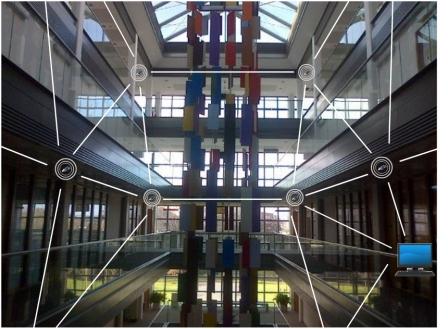Middleware Techniques for Robust Control in Cyber-Physical Systems

Responsible:
- Prof. Cormac J. Sreenan
- Dr. Szymon Fedor
- Dr. A.K.M. Mahtab Hossain
Short Description:
Our research envisions an engineered and controlled physical computer system resulting from a collaboration between the United Technologies Research Center (UTRC), and the Mobile and Internet Systems Laboratory (MISL) at University College Cork (UCC). UTRC's parent United technologies is an industry leader in the management of building facilities for security control, emergency management, climate control, energy optimization, etc. Many of these services require closed-loop control, reading from sensors and actuating equipment such as Heating, Ventilation and Air-Conditioning (HVAC) systems, alarms, door opening/closing, lighting, emergency pathways, and security cameras. UCC's MISL Laboratory conducts research in the areas of computer networking and systems, with a focus on applications in the mobile/wireless/sensor domains. The synergy between UTRC and MISL based on their specialisations provides an ideal opportunity to conduct research on this topic.
A CPS's (Cyber Physical System's) motivation is to bridge the gap between virtual (computing devices like sensors) and real (physical) world to ensure better living conditions and increase a system’s efficiency, reliability and autonomy. Wireless Sensor Networks (WSNs) are a key infrastructure element for CPSs, and are relied upon for communication between sensing nodes and actuating nodes. Robustness refers to the degree of reliability or trust that the system design and facilities manager can put on the deployed system in regard to it meeting the performance targets for actuation. This depends on having accurate and sufficient information at the right time and in the best network location. Our middleware based design and implementation technology should support the production of evidence that the built system is reliable, and behaves correctly even in the face of unforeseen circumstances and system evolution.
Sponsors:
Irish Research Council and United Technologies Research Centre Ireland Ltd under the Enterprise Partnership Scheme
Mobile and Internet Systems Laboratory
Contact us
Department of Computer Science, Western Gateway Building, University College Cork, Western Road, Cork, Ireland.
